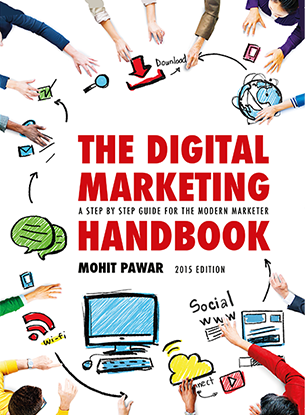If you are a wanna-be entrepreneur, chances are that you have thought about why, when and how of entrepreneurship.
I thought of some common questions that people who are starting as entrepreneurs have. Here are the questions and my answers to help you move past initial resistance.
1. When to start on my own?
I always tell that it is a great idea to build a start up as a student. The best time is right after you get in or 2 years before you finish. If you are about to finish your degree, get a job first. Peer pressure and student loan may be immense at this point so it is good to work in industry for 12-24 months. If you can’t get a dream job, get into an industry where there is scope for learning and growth.
Use this time to build your network, save some money and then take the plunge.
While you are working at the job, create a parallel path for yourself, read and think about bigger problems to solve. Use this time to test your business ideas. Start a small consulting biz built around your skill set. Focus on making some extra money. Learn about pricing, negotiation, selling and collaboration.
If you have already been working in the industry for some years, start today or tomorrow – as early as you can.
2. How to increase my chances of success as an entrepreneur?
The purpose of your first business should be to train yourself about winning projects and being paid directly for your work. When you are in a job, your employer is paid first and they pay you a part of what they make. Through your work you help them directly (sales people) or indirectly (operations, marketing resources). When you own a business, you are directly paid for your efforts which is obviously more than when it comes via an employer – given that services rendered are the same.
So for your first business choose an idea where you can start earning fast – from day one if possible. If you start to make money, you will want to spend time on your business and make more money in return. That is one step towards success. You should focus on reaching a point – where you are making as much money – as you make in your job or at least equal to your living expenses. Your focus should be to reach this point fast.
Once you reach this point work on building further and hire resources to help you expand.
3. Should I try to get funding for my business? If yes, when?
Avoid taking funding for your first business. If you are short of ideas check these businesses that you can start with little or no money.
Why? Because as a first time entrepreneur chances are really bleak that you will get funding. If you think that you have a world-changing idea then it may be a different scenario. But more than 99% of times your ideas will not be funded if as a first time entrepreneur.
Better spend this time and energy in building your business and learning as much as you can about your industry and new innovations. Within couple of years you will have a start up (with success or failure), and most possibly a network that is mutually supportive and tons of experience. This is the right time to go out for funding.
But in the beginning, bootstrap. Bootstrapping helps you understand the value of money. You will also find out areas where you think having more money can speed up success. Use money to improve precisely these areas once you get funding.
4. I have many ideas, which one should I begin with?
Take time to brainstorm about possible businesses to start. Start with the one you can begin today or fastest.
Good if you tinker with different business ideas initially. It will help you know which ideas can find acceptance in the market and can help you make money. Once you know this you will have a real business on your hands, now stick to this one.
5. Should I risk a professional career at the cost of entrepreneurship?
If you give entrepreneurship a good shot you are not risking anything. You can get a job at any stage of your career. I know a friend who stepped into corporate world after being an entrepreneur for 18 years. He was nearing 50 when he did it. Now 55 he is back to being an entrepreneur. For younger people it is even easier. More so where entrepreneurial experience is considered a plus by most of the companies.
It is a risk if you do not give your heart and soul to your idea. In that case stay in a job.
Also even if you start small – keep thinking about big problems to solve. Because when you solve big problems or provide big solutions, you will make more money.
World needs more problem solvers – people who will provide innovative answers to the big questions in technology, transportation, energy, food, and healthcare. You can be the one providing these answers.





Nice post Mohit.
Bootstrapping for almost 3 years………..does that sounds sustainable? Or the entrepreneur should now look for a parallel path……
Cheers.
Thanks Jigyasa.
Hang in there for another year. Give your best shot during this period to maximize revenues. After that focus on scaling as fast as your temperament permits. Give equity (if needed) to attract capital, right people and distribution. The entrepreneur does not need a (professional) parallel path at this point and needs to live and breathe the current venture 🙂